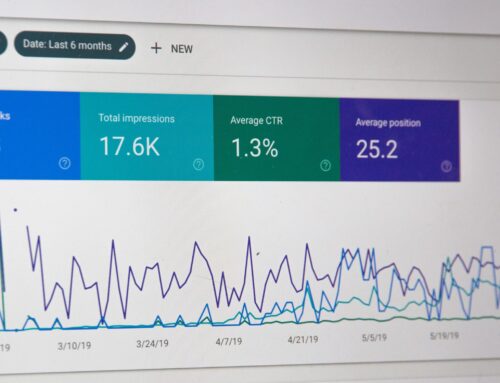
The term, learning management system, or LMS, is one you’ve probably heard a decent amount of in the eLearning industry. However, you might be wondering what the term even means. An LMS is a software program for that provides hosting, delivering, tracking, and administrative capabilities for your training, among other features. Essentially, if you’re building an eLearning course, then the LMS is where your learners will interact with it.
Typical LMS features
With an understanding of the basic definition, let’s take a look at what some of these typical LMS features look like.
Hosting the course
 The most basic feature of an LMS is to host your eLearning content. There are several authoring platforms you could use to build your training, but the LMS is where the training will sit. If your LMS is SCORM compliant, then you have much more flexibility in the types of content that you can host.
The most basic feature of an LMS is to host your eLearning content. There are several authoring platforms you could use to build your training, but the LMS is where the training will sit. If your LMS is SCORM compliant, then you have much more flexibility in the types of content that you can host.
Delivering the content
An LMS should also be able to deliver the content that it’s hosting. There’s no point in having a course if no one is able to take it. The LMS needs the ability to deliver to large numbers of learners at once, so that you don’t encounter bottleneck issues down the line. It’s also important to consider whether the LMS supports learners using different devices, such as computers, tablets, and mobile phones.
Administrating the experience
 Another requirement of an LMS is the ability to run administrative tasks. The most common of these tasks is handling student enrollment. You need to be able to enroll and unenroll learners in your courses. If your LMS allows you to configure dates for when enrollment opens and closes, then that’s an extra perk. As an administrator, you also need to configure your course settings. Some examples of these would be passing scores, prerequisites, and navigation.
Another requirement of an LMS is the ability to run administrative tasks. The most common of these tasks is handling student enrollment. You need to be able to enroll and unenroll learners in your courses. If your LMS allows you to configure dates for when enrollment opens and closes, then that’s an extra perk. As an administrator, you also need to configure your course settings. Some examples of these would be passing scores, prerequisites, and navigation.
Additional administrative capabilities for an LMS could include:
- Review – The ability to review learner submissions. This is typically used when you have a writing prompt, or other submission that requires an instructor to review and approve.
- Content edits – Depending on your course authoring tool, you might be able to make content edits directly in the LMS. This saves time from having to edit in your original authoring tool, repackage it, then reupload it. The latter solution also runs the risk of overwriting previous learner data.
Tracking data
 An LMS will usually contain some tracking elements. These are ways for administrators and instructors to see how learners are interacting with the content. The most basic type of tracking is regarding user performance — how long learners are taking to complete your course and what scores they’re receiving. An advanced LMS can even let you see if your learners downloaded or accessed any available bonus materials. Additionally, if you’re building out a learning path, then your LMS might be able to automate the learning journey. For example, if a learner exceled in a given module, then the LMS can recommend they skip ahead to a different section of the course, whereas someone who struggled might be assigned further content.
An LMS will usually contain some tracking elements. These are ways for administrators and instructors to see how learners are interacting with the content. The most basic type of tracking is regarding user performance — how long learners are taking to complete your course and what scores they’re receiving. An advanced LMS can even let you see if your learners downloaded or accessed any available bonus materials. Additionally, if you’re building out a learning path, then your LMS might be able to automate the learning journey. For example, if a learner exceled in a given module, then the LMS can recommend they skip ahead to a different section of the course, whereas someone who struggled might be assigned further content.
Providing other features
While we covered some basic LMS features, here are a few more advanced ones:
- Course authoring – The ability to create content in the LMS itself. This includes text blocks, assessments, images, and videos. This feature allows for seamless edits to your training.
- Gamification – The ability to add game like elements into your course. These can include leaderboards, badges, points, and interactive pages.
- Messaging – The ability to send manual or automated messages to learners. These can be upon enrollment, course progression, or course completion.
Takeaways
By now, you should understand what an LMS is. The place where your eLearning lives, the LMS is the cornerstone of your training. In addition to hosting your content, an LMS is typically capable of delivering and tracking your course and how it’s used. A more advanced LMS allows you greater flexibility in how you handle administrative tasks, such as reviewing submissions and making edits.
If you’re looking for an LMS that can handle all the tasks mentioned here, then we’d love to talk you through our award-winning platform, Knowledge Direct. Get in touch, so we can set you up with a 30-day free trial. Additionally, we can offer you guidance for the next steps in your eLearning journey. Let’s schedule an appointment!
For more industry-focused articles like this, subscribe to our free monthly newsletter, Smarter…Faster!




